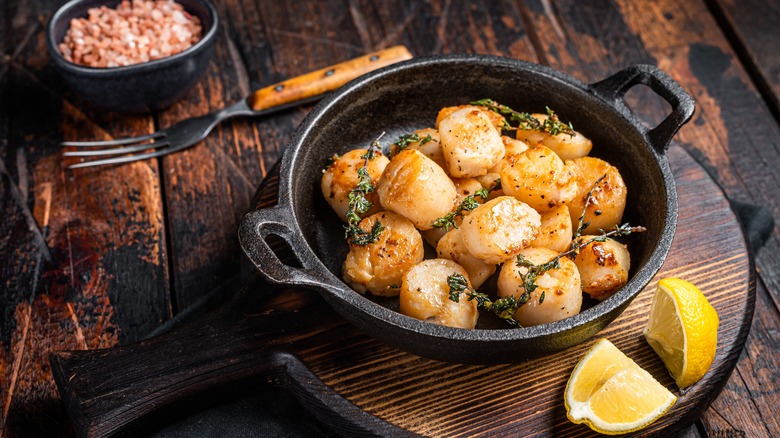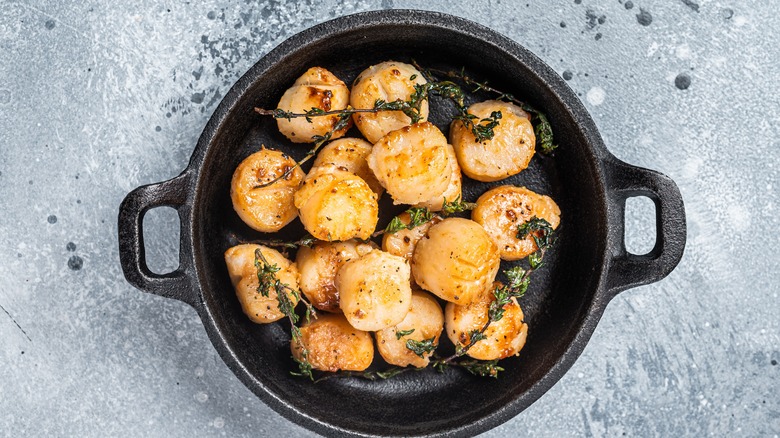Chefs Share Their Top Tips To Avoid Overcooking Scallops
With scallop season lasting from July until September, we're using the short window to try out all the best scallop recipes we possibly can. The sea creatures are a little pricey, so it's certainly best to get your moneys' worth by cooking every scallop to perfection. The easiest way to throw money down the drain is by overcooking them, but we spoke to a few chefs for their best tips on preventing that.
Scallops are delicate, so a minute too long in the pan and they can easily go from seared scallops to scorched ones. Even if they look okay from the outside, one bite of a rubbery, chewy scallop will tell you that they're overcooked. Across the board, chefs recommend high heat as the key to perfectly cooked scallops. "Use a nice quality pan, get it hot PRIOR to adding the scallops, and use plenty of oil when searing," recommends Chef Jeffrey McInnis, a contestant on "Top Chef" with three James Beard nominations who's also the chef at both Root & Bone Miami and Stiltsville Fish Bar.
The longer scallops sit in the heat, the more they're at risk for overcooking, which is why McInnis stresses to be quick with them. Executive Chef Kory Foltz of Sunseeker Resort echoes McInnis' recommendation for pre-heating the pan. "This helps achieve a good sear and cooks them quickly," he explains. It also improves the scallops' texture. "High heat creates a nice crust while keeping the inside tender."
Follow this tip for tender scallops cooked just right
While heat is one of the most important factors for cooking scallops, timing is everything, too. To prevent overcooking them, Chef Nicole Brisson, Executive Chef of both Brezza and Bar Zazu in Las Vegas, recommends removing the scallops from the skillet right before they've finished cooking. "[With] sea scallops, you always want to pull [them] from the pan when there is still a little jiggle to the center," she says. "They will carry over cooking after removed."
Using a food thermometer is one of the safest ways to determine when to take the scallops off the stove. The seafood is done cooking at 125 degrees Fahrenheit, but McInnis removes them at a lower temperature. "I suggest around 110 to 115 degrees when cooking scallops, as they will 'carry over' and continue to cook," he says. If you don't have a food thermometer, Foltz has another way to tell when scallops are done. "Cook until the scallops are opaque and firm to the touch," he notes. "They should have a slight translucence in the center."
Prepping the scallops themselves will also ensure that they're cooked right. "Pat scallops dry with a paper towel before cooking," Foltz recommends. "Excess moisture can cause them to steam rather than sear." He also states the importance of giving each scallop space in the skillet, a sentiment that McInnis shares. "Overcrowding the pan can lower the heat and cause steaming rather than searing," explains Foltz.

